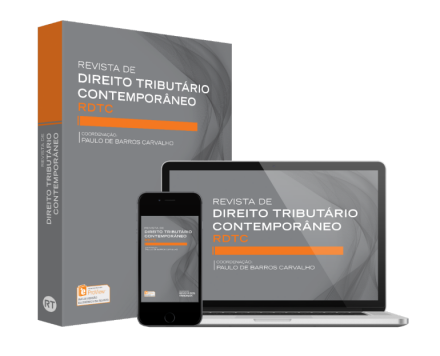AVERBAÇÃO PRÉ-EXECUTÓRIA, INDISPONIBILIDADE ADMINISTRATIVA DE BENS E A SÚMULA 266 DO SUPREMO TRIBUNAL FEDERAL
Revista de Direito Tributário Contemporâneo
AVERBAÇÃO PRÉ-EXECUTÓRIA, INDISPONIBILIDADE ADMINISTRATIVA DE BENS E A SÚMULA 266 DO SUPREMO TRIBUNAL FEDERAL
Autor Correspondente: I. V. S. Rosa | [email protected]
Palavras-chave: sanção política, lei em tese, averbação, indisponibilidade administrativa
Resumos Cadastrados
Resumo Português:
A Lei 13.606/2018 inseriu o artigo 20-B à Lei 10.522/2002, autorizando a PGFN a averbar e a tornar indisponíveis bens e direitos sujeitos a arresto ou penhora, caso o devedor inadimplente, notificado da inscrição em dívida ativa, não realize o pagamento da exação tributária no prazo de cinco dias. Referida lei, no artigo 20-E, permitiu que a Fazenda Nacional editasse uma Portaria para fiel comprimento dos atos constritivos. Antes da edição de qualquer ato normativo, contra esse dispositivo, foram ajuizados mandados de segurança preventivos, tendo em vista a concessão de medidas liminares para preservação dos bens e direitos dos contribuintes e declaração de inconstitucionalidade do dispositivo. Objetiva o artigo analisar a aplicação da Súmula 266, do STF, no contexto das disposições da lei e da edição da Portaria 33/2018. Ao final, propõe-se que o artigo 20-B inserido à Lei 10.522/2002 é lei com efeitos concretos e não lei em tese.
Resumo Inglês:
Law 13,606/2018 inserted article 20-B to Law 10,522/2002, authorizing the PGFN, to register and make assets and rights subject to attachment or attachment unavailable, in case the defaulting debtor notified of the inscription in active debt and does not make the payment of the taxation within five days. Said Law, in article 20-E allowed the National Treasury to issue an Ordinance for the faithful length of the constrictive acts. Before issuing any normative act, against this provision, preventive injunctions were filed aiming at granting preliminary measures to preserve the assets and rights of taxpayers and declaring the provision unconstitutional. The article aims to analyze the application of Precedent 266, of the Supreme Court, in the context of the provisions of the Law and the edition of Ordinance 33/2018. In the end, it is proposed that article 20-B inserted into Law 10.522/2002 is a law with concrete effects and not a law in theory.

